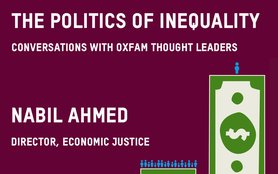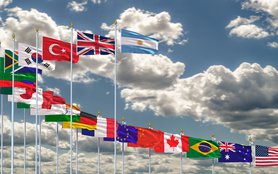When migrant workers can’t get vaccinated, they don’t get hired. It’s one more way that the COVID-19 crisis is driving poor people deeper into poverty, and one more reason to quickly ramp up access to vaccines in countries that are struggling to turn the tide on the pandemic.
On June 14, Danica Arao* woke up early so she could queue up for her COVID-19 vaccine at one of Manila’s 22 inoculation sites. She arrived at 5:00 a.m. and became patient number 1980, just 20 slots shy of the day’s 2000-patient cutoff. It was first come, first served, so some of the people in line arrived the night before and camped out. Vaccination sites like this one are potential super-spreader events, but she had too much at stake to wait for a safer time and place. “There is no physical distancing in my type of work,” she explained, “and without a vaccination, my employer will not hire me back.”
For migrant workers, an obstacle course
Arao is one of an estimated 2.2 million Overseas Filipino Workers that the country deploys around the world. In May 2020, she lost her job as an au pair in Rome and—like many of her compatriots across Europe, Asia, and the Middle East—had to return home. Now, her employer in Rome wants her back, and Arao desperately needs the income, but for months it’s felt like the cards have been stacked against her.
Every time she moves between her province and the capital city to process her papers, Arao has to do a swab test that costs between $70 and $100 and is only valid for 48-72 hours. Because she’s been jobless for more than a year, money like that is not easy to find. Getting access to a vaccination hasn’t been easy, either. After registering online, people are often given only a day’s notice about when to show up, and once at the site, may wait in line for up to eight hours.
Then there’s the question of which vaccine: the Philippine government is mainly offering the Chinese vaccine Sinovac; but in Europe only the Moderna, Pfizer, Janssen, and Oxford/Astra Zeneca vaccines have been approved. Countries won’t bar Arao for showing up at the border without a vaccine they’ve endorsed, but companies are starting to screen employees on the basis of which vaccine they’ve received, and she fears she may experience discrimination at some point down the line.
With low pay and few labor protections, migrant workers like Arao are always at risk when a health or humanitarian or economic crisis rocks their world; and because more than half of the country’s migrant workers are female, women (and the families they support) are disproportionately affected by those upheavals.
A lethal combination
When the G7 countries met this month and pledged to donate a billion vaccine doses to poorer countries, it was a hopeful gesture—but not one that reflects the enormity and urgency of the problem: it will take 11 billion doses to end the pandemic, and at the rate we’re going, it will take 57 years for everyone to be fully vaccinated.
Perhaps it should be no surprise that the G7 leaders failed to take bolder action: people in their countries are 77 times more likely to be offered a vaccination than those living in the world’s poorest nations. The share of the Philippine population that’s been fully vaccinated is approaching four percent; in the US, it’s ten times that.
There’s plenty of vaccine to go around in the US, and in some places, the vaccine-hesitant are being offered generous incentives to sign up. (California has announced $116.5 million in prize giveaways.) Which is not to imply that life in the US is charmed these days: low-wage workers in places like poultry processing plants were already working in inhumane conditions; during the pandemic, they’ve faced severe risks of contracting the disease—a problem compounded by terrible sick-leave policies. Inequality and COVID-19 are a lethal combination wherever you go.
Fairness will save lives
Six hours after arriving at the inoculation site, Arao finally got her jab. She felt lucky, because delays in vaccine deliveries to the Philippines have forced some cities to close their vaccination sites. With luck, she’ll get her job back.
It goes without saying that halting the pandemic is a critical priority. To make it possible, we need to fight hard for vaccines that are free, fair, and available to all. The lives and livelihoods of countless vulnerable workers hang in the balance. Let’s raise our voices together.
*She chose not to give her real name.



